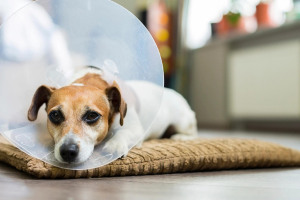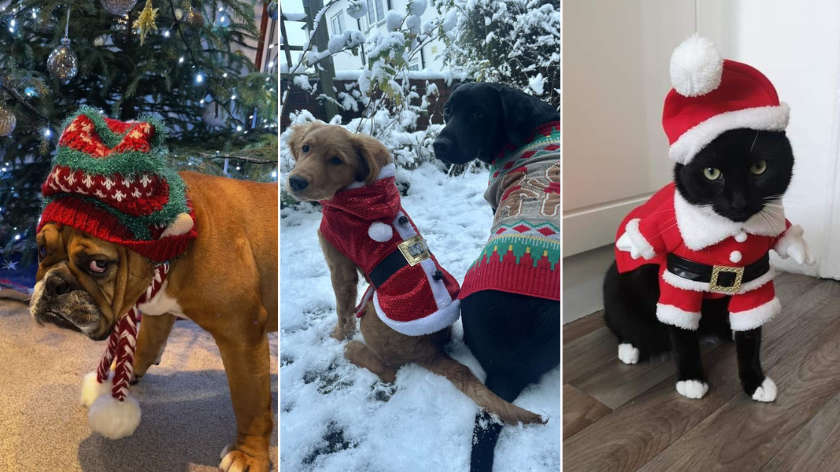
Claro Hill Vets give advice to what pet owners should avoid to keep their pets safe from poison.
Toxic and Hazardous Foods
Chocolate:
Chocolate contains theobromine, a chemical that can be fatal to dogs and cats.
The darker the chocolate, the higher the risk.
Common products:
dark chocolate, milk chocolate, cakes and coco powder.
If you think your pet has ingested chocolate here is a helpful calculator to check the toxic dose How Much Chocolate Can A Dog Eat?
Use Our Calculator To Find Out (vets-now.com)
Caffeine:
It can affect the heart and blood pressure, and may cause seizures.
Common products:
tea, coffee, energy drinks and human pain killers.
Grapes, raisins and sultanas:
Symptoms and toxic dose can vary, so its hard to know if your pet will be affected.
Kidney failure can occur after ingesting these.
Salt:
Uncommon but if they ingest a lot of salt and don't have access to after it can be fatal.
Onions, garlic and leeks:
Contain chemicals called organosulphoxides, which are toxic to dogs and cats.
Severe cases of poisoning can lead to anaemia (low red blood cells).
Avocados:
Contain the chemical persin, which is highly toxic to birds and rabbits, but safe in small amounts for cats and dogs.
However, cats and dogs can get stomach upset due to the high fat content.
Macadamia nuts:
Are toxic to dogs even in small amounts.
Symptoms include weakness, tremors, vomiting, and diarrhoea.
Mouldy food:
They can contain dangerous mycotoxins (fungi) which are potentially fatal to dogs.
Symptoms may start quickly and can include vomiting, tremors, and seizures.
Poisoning can be fatal if not treated quickly.
Alcohol:
This can be toxic to cats and dogs and remember can also be present in household cleaning items.
Bones:
Whether cooked or raw are unfortunately very hazardous to dogs.
Bones can cause injuries to the mouth and teeth, damage to the throat and oesophagus, constipation, blockages and they can splinter and cause damage to the stomach and intestines.
Xylitol (sweeteners):
It’s found in low-sugar or sugar-free products, including sugar-free chewing gum, sweets, medications, some nut butters, and nicotine replacement chewing gums.
Household hazards
Cleaning products: Toxic flowers and plants Garden Hazards.
These can be harmful to our pets due to the chemicals and ingredients they contain.
Some products may cause burns to the skin or mouth if swallowed, other symptoms such as vomiting and diarrhoea.
Batteries:
These can cause acidic burns to your pets tongue, stomach and intestines.
Vitamin D:
This is an essential vitamin, but excessive amounts can be poisonous to our pets.
It is found in rat and mouse poisons, and human supplements, including ointments.
Mild toxicity can cause vomiting, diarrhoea, and lethargy, whilst severe toxicity can cause kidney failure and difficulty breathing.
Paracetamol:
Paracetamol is toxic in cats, therefore it should never be used.
Dogs can have paracetamol as a painkiller but only at a dosage you have discussed with your vet.
Ibuprofen:
This is toxic to both cats and dogs and should never be given.
It can cause renal failure at small doses.
Toxic flowers and plants
- Lilies
- Autumn Crocus
- Cordyline/Dracaena
- Daffodil
- Horse Chestnut
- Oak
- Dumbcane
- Potato plants
- Yew
- Cotoneaster
- Rhododendron
- Mushrooms/Fungi
Garden hazards
Weed killers:
Can be dangerous if they get it on their fur or swallow them.
Keep them in a safe secure place out of sight.
Antifreeze:
This is very poisonous to pets and is found in screen wash, ‘de-icers’, and brake fluid for the car.
Ingesting even the smallest amounts can cause kidney failure and can be fatal.
Slug and snail pellets:
These are toxic to pets and many wildlife, so we highly recommend not using these in your garden.
Slug pellets containing metaldehyde can be fatal within hours, but these are now banned from sale in the UK.
There are organic chemical free pest control options available, which are safer to use.
Rat poison:
They are designed to be deadly, so unfortunately they can be dangerous to pets as well.
Possible symptoms include bleeding (as many of the poisons prevent clotting), coughing, vomiting, and seizures.
Bees and wasps:
These can cause skin and swellings if they sting your pet, especially near the face or throat.
If you ever have any concerns your pet has ingested anything poisonous please call Claro Hill Vets on 01423 228080














